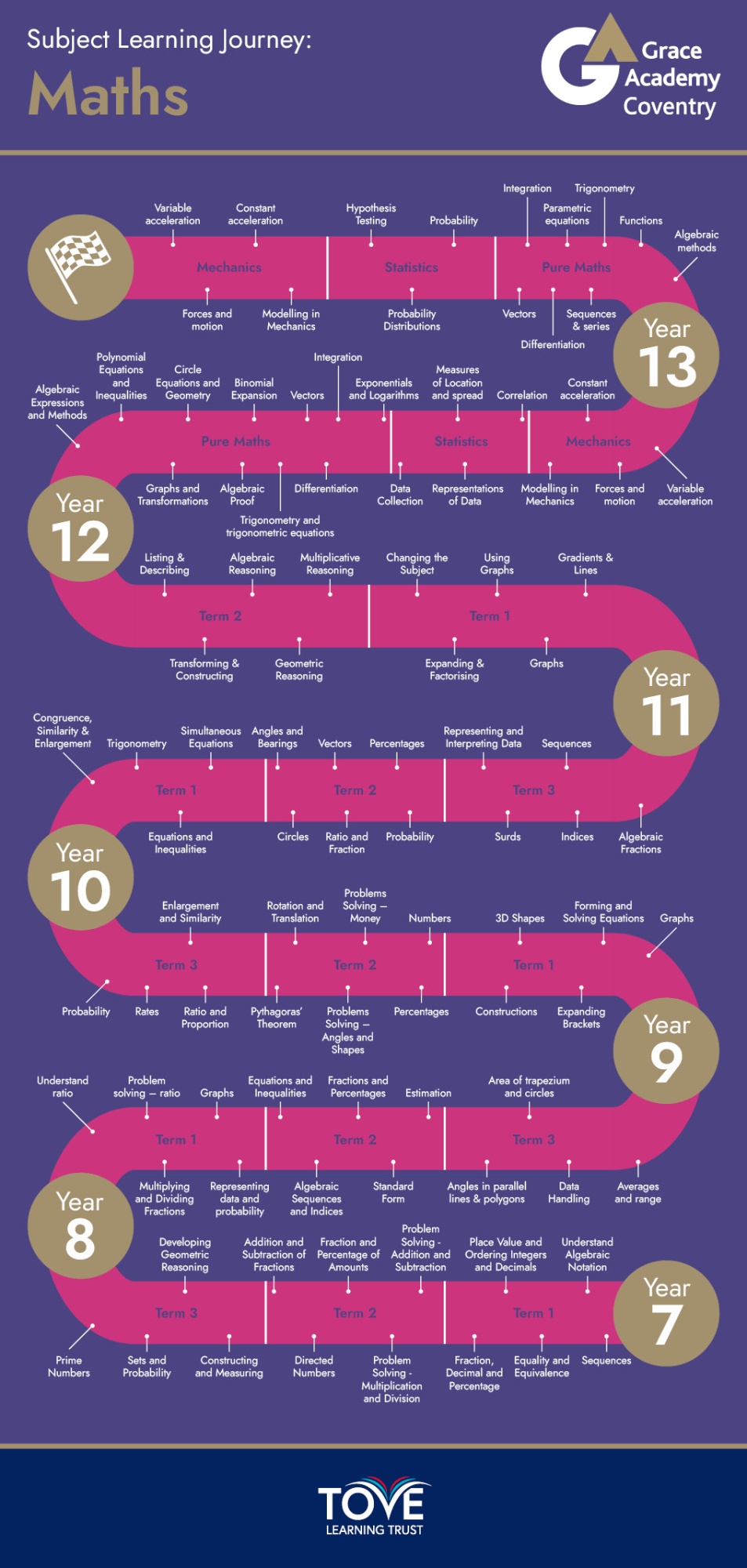Maths
Curriculum Intent
Our curriculum intent in Mathematics is to understand the purpose beyond the classroom through the use of engaging and real life problem solving questions and being able to recognise the importance of Mathematics in life and within society. We focus on understanding what students already know and build on their prior knowledge, students focus on understanding the essentials, before extending their learning and going on to achieve excellence.
Our curriculum is designed to give our students the best opportunities in both employment and personal growth by focusing on fluency and reasoning and problem solving. We place a real emphasis on teaching Mathematics from a first principle to allow students to gain a deeper understanding. Most career options require the ability to think logically and quantitatively in order to analyse and solve problems. Throughout our curriculum we place a real emphasis on incorporating these skills into our daily lessons, and ensuring students are assessed on these skills where appropriate allowing students to reflect on their strengths and weaknesses.
We aim to inspire students to become deep, independent and analytical learners which will enable them to have the resilience to solve everyday problems. Mathematics is critical in Science, Technology and Engineering and necessary for the advancement of our future generations. At Grace Academy Coventry we want our students to develop an appreciation of the beauty of Mathematics as well as a sense of enjoyment and curiosity for the subject.
Qualification information:
GCSE Foundation: https://www.ocr.org.uk/qualifications/gcse/mathematics-j560-from-2015/
GCSE Higher: https://qualifications.pearson.com/en/qualifications/edexcel-gcses/mathematics-2015.html
Curriculum content:
Attached are the curriculum maps which outline the sequence we use in order to structure our learning. If you would like to support your child's learning, we have attached links to Oak National Academy who provide lessons, activities and resources for commonly taught topics. Please use the curriculum map for this subject before visiting:
https://teachers.thenational.academy/subjects/maths/key-stages/key-stage-3
https://teachers.thenational.academy/subjects/maths/key-stages/key-stage-4

